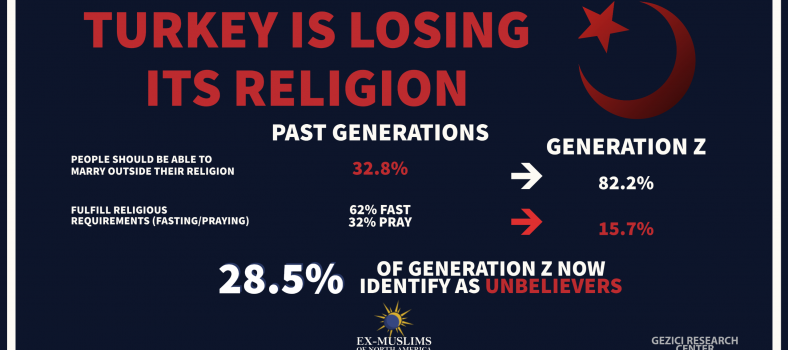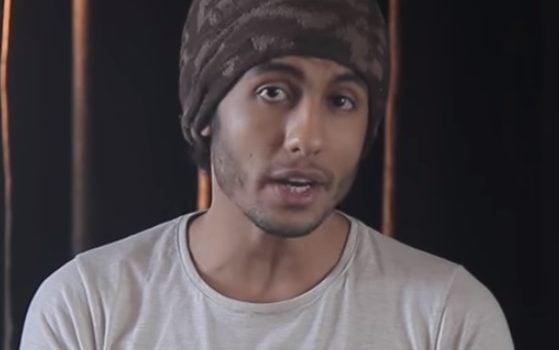The Absurdity of Abraham: The troubling morals of Eid al Adha
On a late October morning in 1994, the nation woke to the stirring pleas of a young woman who had just experienced every mother’s worst nightmare. Through her emotional and all too convincing sobs and sniffles, Susan Smith riveted the world with her heartbreaking story of the burly black man who had hijacked her car with her two young sons still inside. Motivated by a shared sense of humanity, volunteers from across the region joined the nationwide manhunt to find the abductor and bring the boys back home to safety.
The public was soon disgusted, outraged, and bewildered, however, when it emerged that the entire story had been a lie. Mrs. Smith had actually drowned her two young boys herself in a nearby lake. Infatuated by her love for a wealthy local man with whom she had been having an affair, Smith murdered her own children when her lover objected to being a part of a “ready made family.”
The depravity of her act was beyond comprehension and Susan Smith is now rightfully serving a life sentence in a South Carolina prison.
There tends to be a general consensus amongst the reasonable these days that anyone who would kill children to demonstrate love must be either evil or mad. Anyone who would actively demand such a demonstration from a parent would be deemed equally as vile and deranged, if not more so. That this reprehensible crime could somehow be construed as a praiseworthy and sensible sacrifice to love would be deemed a ridiculous assertion by all accounts.
It seems this sensibility is completely thrown out, however, when the demanding party is God. This October, billions of Muslims around the world are gathering to celebrate Eid al Adha, the festival that commemorates Abraham’s alleged willingness to sacrifice his own son in order to prove his love and devotion to Allah.
Disregarding for a moment the fact that the story itself is riddled with plenty of historical problems, curious contradictions with earlier tales, and a whole host of ethical issues the least of which not being the trauma our poor young Ishmael (or was it Isaac?) must have endured during the ordeal, I want to focus on the lesson that Muslims are meant to learn from this tale of attempted filicide. For as lambs are sent to the slaughter and the Muslim father leans over today to explain to his son the rationale behind Abraham turning over his own son for sacrifice, the message is clear: Your life is worthless when compared to the will of Allah.
It is a message that often gets absorbed into the very core of a Muslim’s existence. It reverberates itself through every aspect of Islamic life: Your opinions, your hopes, your dreams, and your desires really do not matter. All that matters is the will of Allah.
“It is not for a believing man or a believing woman, when Allah and His Messenger have decided a matter, that they should [thereafter] have any choice about their affair. And whoever disobeys Allah and His Messenger has certainly strayed into clear error.” Surah 33:36
Further, your friends, your family, your offspring, and your loved ones are worthless if they oppose the will of Allah.
“You will not find a people who believe in Allah and the Last Day loving those who oppose Allah and His Messenger, even if they were their fathers or their sons or their brothers or their close kindred.” Surah 58:22
Through these constant reminders, Islam creates a frightening and mind-monopolizing environment in which believers are encouraged to be willing to sacrifice not only their own lives, but also the lives of others should the will of Allah demand.
As ex-Muslims, we often are forced to face the brunt of this reality. At its most extreme, this manifests itself in the real and present threat of physical harm that traditional Islamic sources prescribe upon those of us who have left the faith.
More often, however, there is the less-discussed but nonetheless troubling mental and emotional threat that many of us know all too well. And while I love a good holiday bash as much as the next heathen, lurking just under the surface of the trays of roasted lamb and sweet desserts are implications of this Eid that trouble me.
When parents disown children and friends abandon friends, I am reminded of Abraham’s willingness to sacrifice his own son for the will of Allah.
When that Muslim mother feels conflicted between expressing her natural love for her apostate daughter and staying true to her Islamic faith, I am reminded of those stones that Ishmael’s mother allegedly threw at the devil when he suggested that perhaps her son did not deserve to die.
And as I think back to those days when I used to sit among friends and loved ones—relationships which have since gone sour—I can’t help but wish the story would have gone differently. I can’t help but wish that Abraham would have stood up for his own son and told Allah no.





